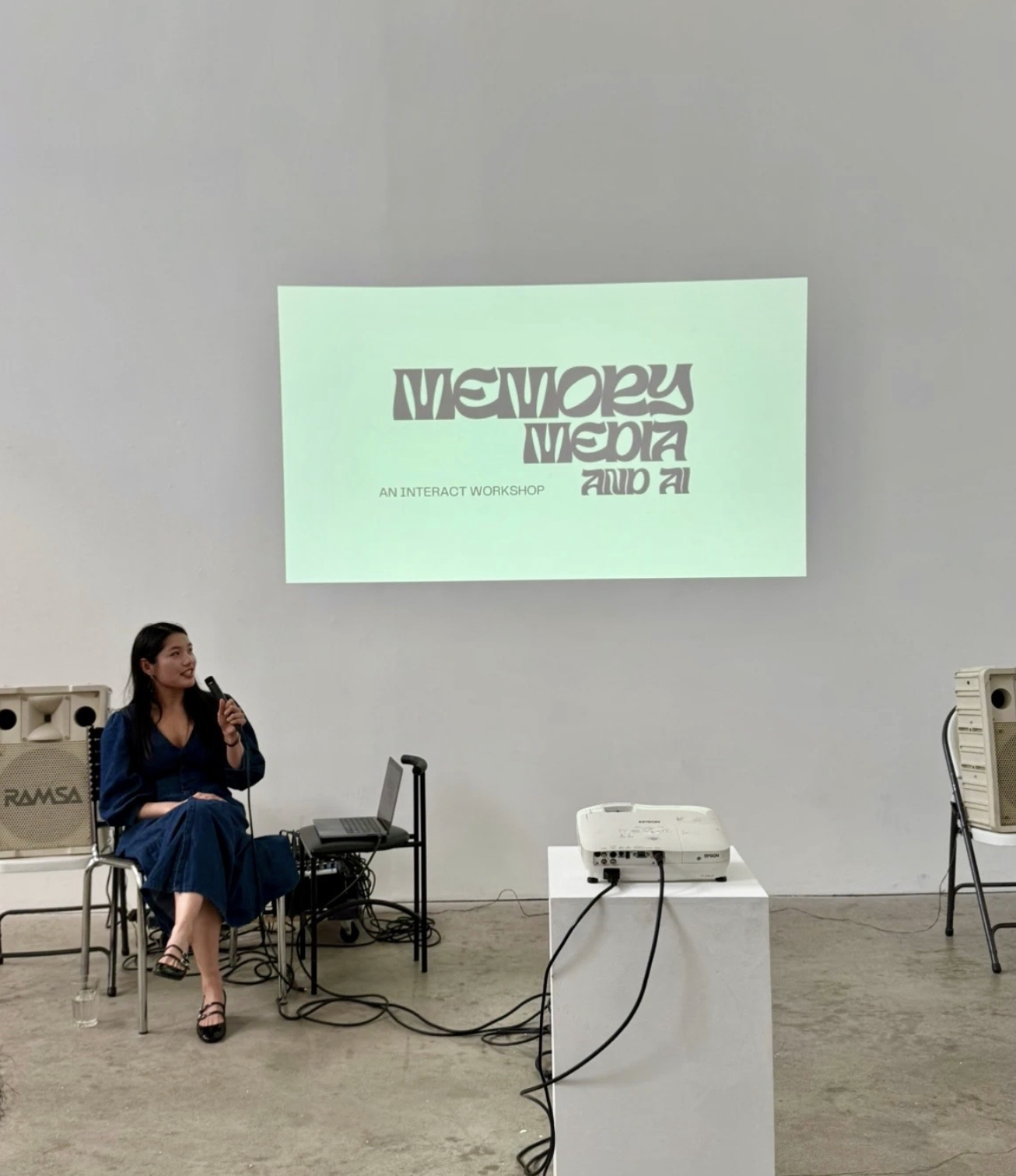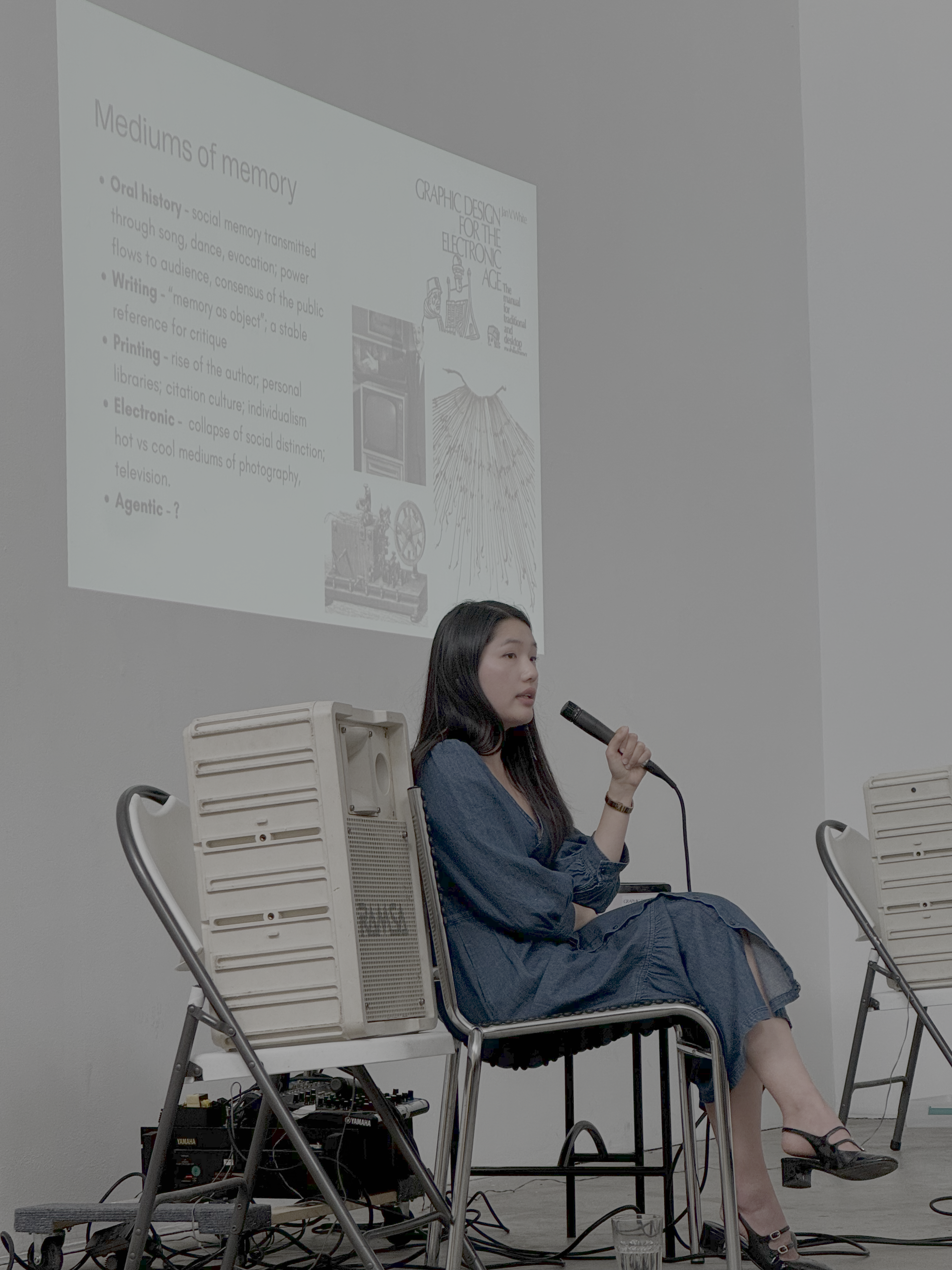
Nicole Seah

Workshop
Memory Media and AI
What did you explore in your Residency?
I was really captivated by the multiplicity of definitions 'memory' holds in today's AI age. On one hand, memory is a deeply personal foundation to identity formation and interiority, and on the other 'memory' is an unsolved engineering problem for AI products.
Memory has always been mediated by technology. The mediums through which memory is carried – stone, papyrus, silicon chip, chat interface – define what memories are remembered. As such, the product builders that make decisions on AI memory become stewards of profound intimacy. They make critical choices about what to index, how to compress lived experience into data, what detail to retrieve, and what to forget. As AI agents become teammates, companions, and interlocutors that aim to "know us across our lives" (Altman), we point technology deeper into them. This comes with increased vulnerability.
I tackled my project from 2 lenses - one on the more reading/research heavy side reading memory theorist work (e.g., Mary Carruthers' Book of Memory, or Neil Postman's Technopoly), and the other from interviewing founders and AI researchers working on implementing agent memory. In doing so, traced the long arc of technology from historical tools (e.g., tribal memory beads, printing press) to present day AI applications and agents.
Key insights and learnings
Memory is an extremely deep research query. There were many different routes by which to learn and understand memory. For example, in AI memory – 1. LLM memory, 2. Agent Memory are two different things with wholly different sets of research areas. I also found myself diving into rabbit holes on the medium front e.g., thinking about how different sorts of technologies changed our memory formation. Turns out memory has always been artificial: supplanted by external technologies (writing) or internal mnemonics (memory palaces). "Artificiality" is not the reason to be afraid of AI memory, that we will outsource valuable memories to an external bank. The bigger question is how we will relate to static storage (databases, memory banks) with living and dynamic practices.
What's next?
Writing/Podcasting - releasing a set of smaller essays or interviews on the topic.
Favorite memory from the Residency
Some of my favorite moments were just serendipitous hangs in HQ - drinking tea with Carolyn, brainstorming with Julia, watching Megalopolis with Liz, getting Tartine/CoffeeShop with Alexia and Maran, eating lunch and working on the patio with everyone.
How has Interact shaped your relationship to technology?
Key learning was to talk to more people to learn about new technologies, and to be unabashed about being a beginner and open to learning. I learned way more through asking people for help than I did digging online and trying to find obscure thinkpieces. The myth of SF is the grandeur of technology, but real knowledge is still shared relationally.
About Nicole
Nicole Seah is a writer and early-stage investor exploring how AI will reshape human values. Her research begins with memory in the world of AI, treating it as both a philosophical inquiry and a rational engineering problem. She bridges anthropology, history, and media studies with on-the-ground insights from product builders. Through interviews and essays, she conducts independent research on the societal impacts of new technology.
Artifacts & Links

Workshop
action shot!
